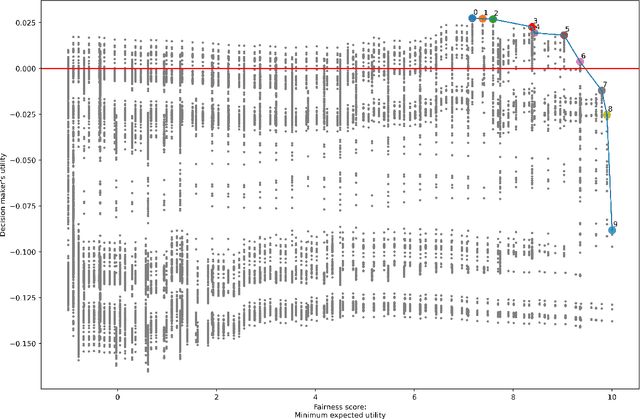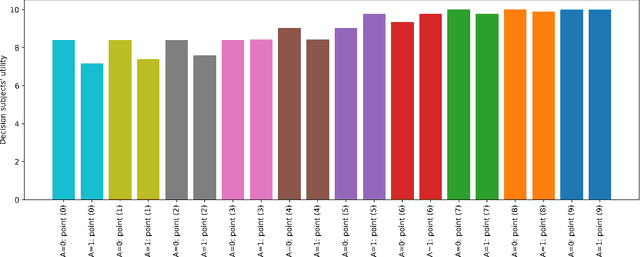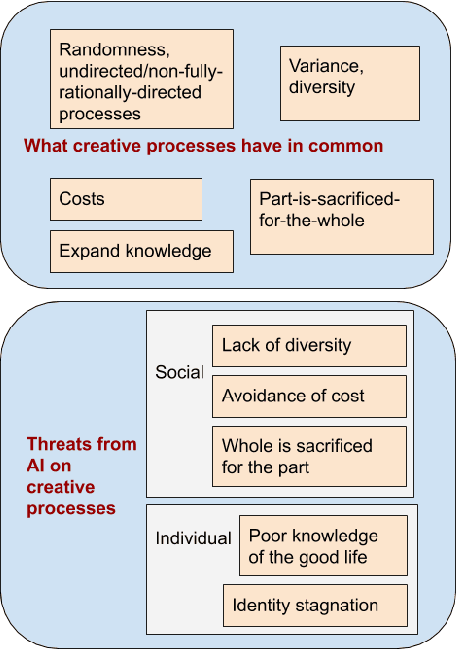Eleonora Viganò
A Justice-Based Framework for the Analysis of Algorithmic Fairness-Utility Trade-Offs
Jun 06, 2022

Abstract:In prediction-based decision-making systems, different perspectives can be at odds: The short-term business goals of the decision makers are often in conflict with the decision subjects' wish to be treated fairly. Balancing these two perspectives is a question of values. We provide a framework to make these value-laden choices clearly visible. For this, we assume that we are given a trained model and want to find decision rules that balance the perspective of the decision maker and of the decision subjects. We provide an approach to formalize both perspectives, i.e., to assess the utility of the decision maker and the fairness towards the decision subjects. In both cases, the idea is to elicit values from decision makers and decision subjects that are then turned into something measurable. For the fairness evaluation, we build on the literature on welfare-based fairness and ask what a fair distribution of utility (or welfare) looks like. In this step, we build on well-known theories of distributive justice. This allows us to derive a fairness score that we then compare to the decision maker's utility for many different decision rules. This way, we provide an approach for balancing the utility of the decision maker and the fairness towards the decision subjects for a prediction-based decision-making system.
The societal and ethical relevance of computational creativity
Jul 23, 2020
Abstract:In this paper, we provide a philosophical account of the value of creative systems for individuals and society. We characterize creativity in very broad philosophical terms, encompassing natural, existential, and social creative processes, such as natural evolution and entrepreneurship, and explain why creativity understood in this way is instrumental for advancing human well-being in the long term. We then explain why current mainstream AI tends to be anti-creative, which means that there are moral costs of employing this type of AI in human endeavors, although computational systems that involve creativity are on the rise. In conclusion, there is an argument for ethics to be more hospitable to creativity-enabling AI, which can also be in a trade-off with other values promoted in AI ethics, such as its explainability and accuracy.
 Add to Chrome
Add to Chrome Add to Firefox
Add to Firefox Add to Edge
Add to Edge